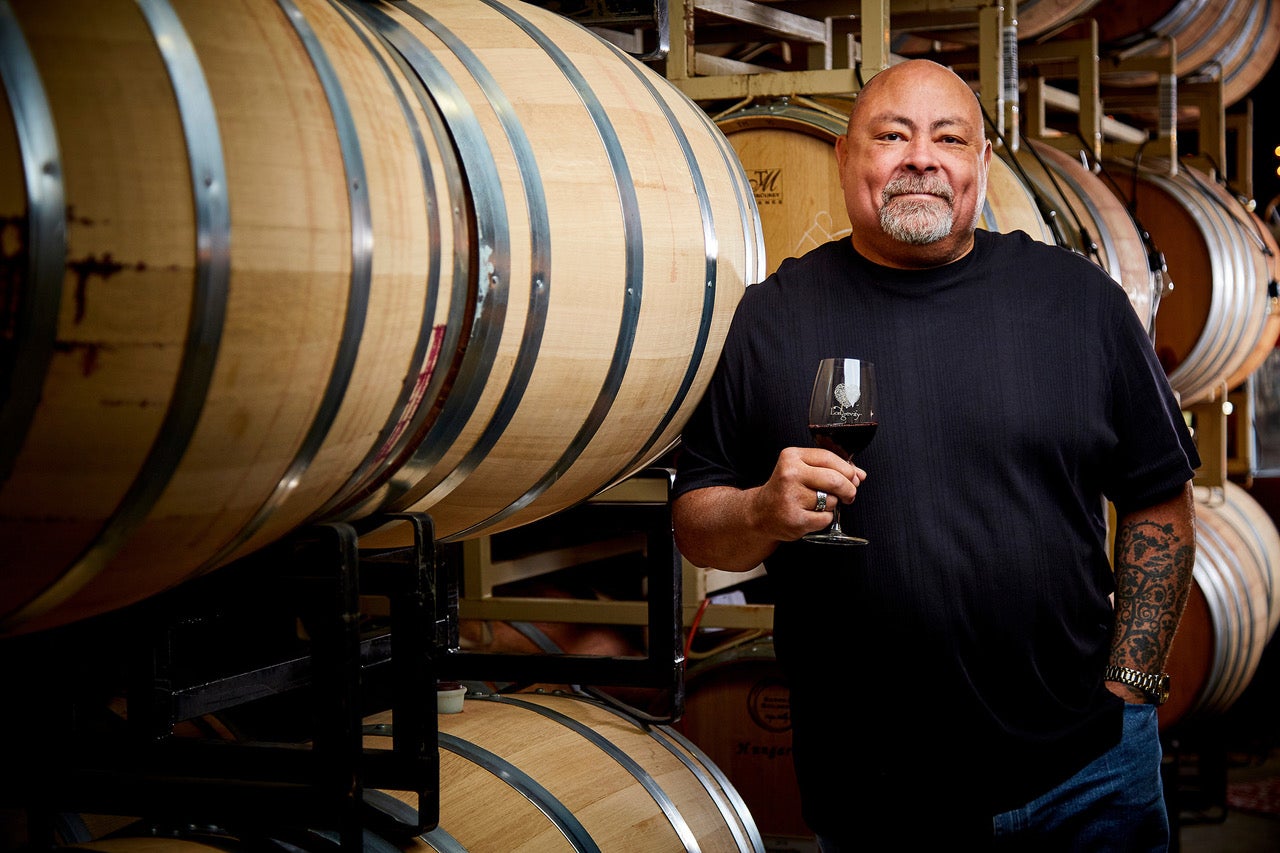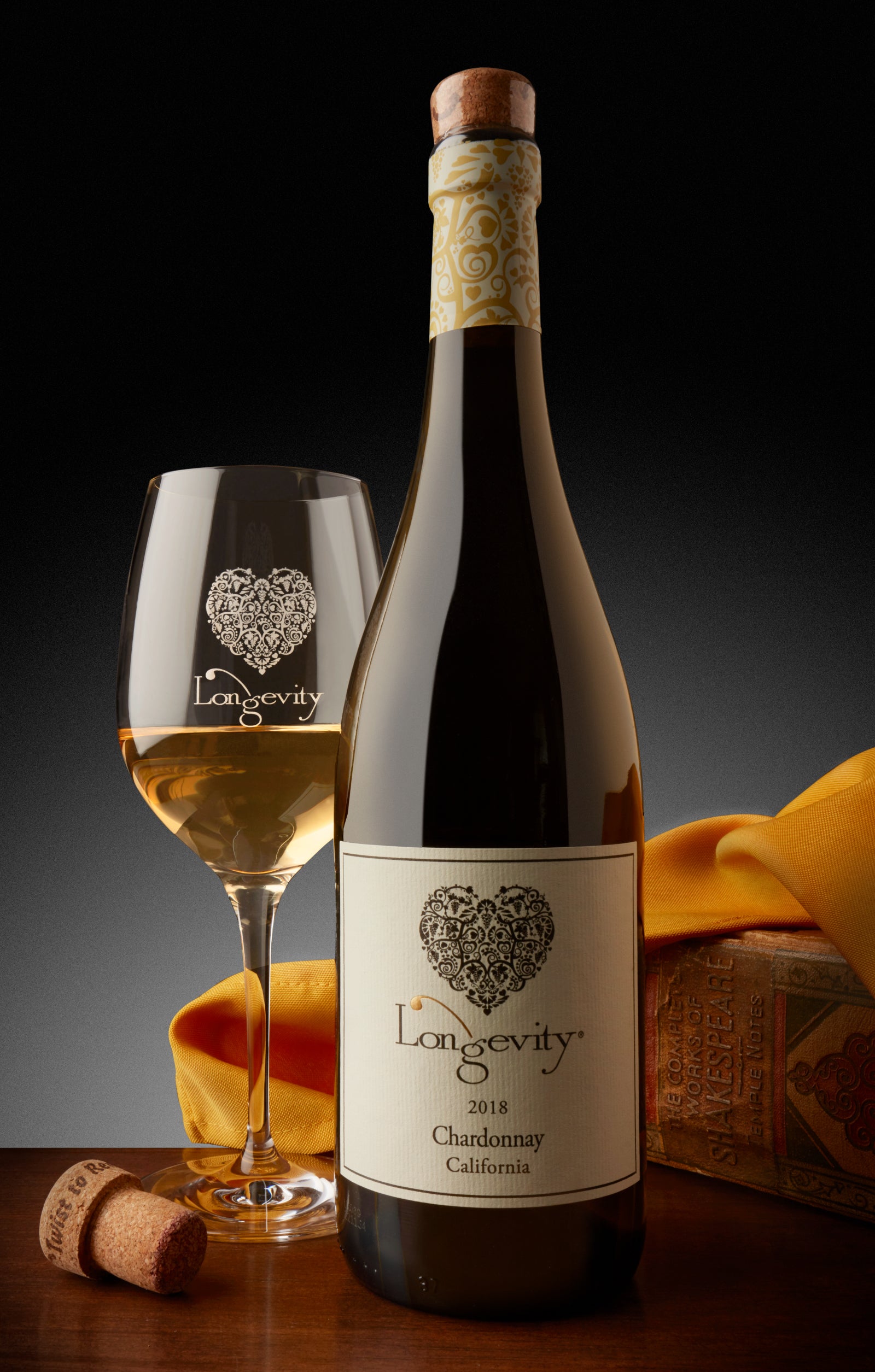
Breaking into the wine business is no easy feat — especially if you’re Black. In fact, there are only approximately 50 black-owned wineries globally, so the journey from winemaker to now president of the Association of African American Vintners was of course met with many challenges.
But none of them could stop Phil Long.
Not even a global pandemic or the loss of his wife and co-founder, Deborah, a year ago to cancer.
Through blood, sweat and tears Long was able to push their dream forward, and fulfill what they started in a garage years ago — with the creation of Longevity Wines — what he likes to call, “a love infused brand.” Now with a unique partnership with Bronco Wine Co., the makers of Charles Shaw wines for Trader Joe’s, Long is able to “spread the love” and distribute his cabernet sauvignon and chardonnay nationally.
In this interview with ESSENCE, Long shares the inspiration behind his new collection, his hopes for making the wine industry more inclusive and further plans for expansion.
You began your wine journey making wine in the garage with your wife Debra. Because Longevity is defined as a love-infused brand — is it inspired by her?
The Longevity brand is absolutely inspired by Debra–she even came up with the name. When I suggested “Long Family Cellars,” she asked me to look around and tell her what part of our family was helping us make wine? Obviously, the name became Longevity, which is both a play on our last name and a reference to our enduring love for each other and for sharing great wine.
When Deborah and I were dating, I started giving her glass hearts for Valentine’s Day. Everything in her life became hearts: heart rocks, heart jewelry, heart everything. When we rebranded in 2009, I designed the current label with the intricate heart that contains more hearts along with grapevines and grapes to truly represent who we are. Today, that heart is the icon of our brand and the symbol of our love story.
What makes Longevity stand out against the rest?
It’s the heart on the bottle that draws people into our love affair with wine and with each other. Then, they celebrate their own love stories with the delicious wine inside. But it’s not just about the brand, which has been in many TV shows and movies, it’s also the fact that this $16 wine competes in the rating arena with wines priced upwards of $50.

What was the creative process behind developing the Longevity collection?
At some point in our journey, we decided that we should have at least one wine named after each family member; that meant one for Debra (Deb-ru-vee), one for me (Phil-osophy) and one for our precious little Havanese pup, PressTon. We still have those three wines on the tasting menu today. They represent no less than 10 different varieties of grapes we use to blend and also to make single varietal wines depending on the quantity available. Those wines have become our signature wines.
What are the changes you feel the wine industry needs to make to be more inclusive?
The fact is African American winemakers make up only one tenth of one percent of the wine industry. In the world of statistics, that rounds down to zero. I think we need to focus on increasing awareness of the fact that African American winemakers do exist and that we produce great wines. I’d like to see wineries across the country building a diverse workforce with education programs, internships and scholarships.
What’s one thing about wine that you want to educate Black people on?
In my parents’ house, there was this tall bottle of Chianti with a basket bowl at the bottom of it. That’s about all I knew about wine growing up. When I went to college, I didn’t even know that wine was an industry or a career path. I would like to educate not only African Americans about the world of wine, but all Americans who don’t have access to information about this delicacy and its industry. Wine can be a rewarding career.
How do you plan on expanding your company?
Longevity is in the fortunate position to have partnered with Bronco Wine Company to launch our brand nationally. I am now producing California wines on a much larger scale to meet the needs of a national brand. We are still producing our reserve wines in our Livermore Valley facility and every bottle of nationally distributed wine encourages customers to visit our Livermore Valley tasting room.





